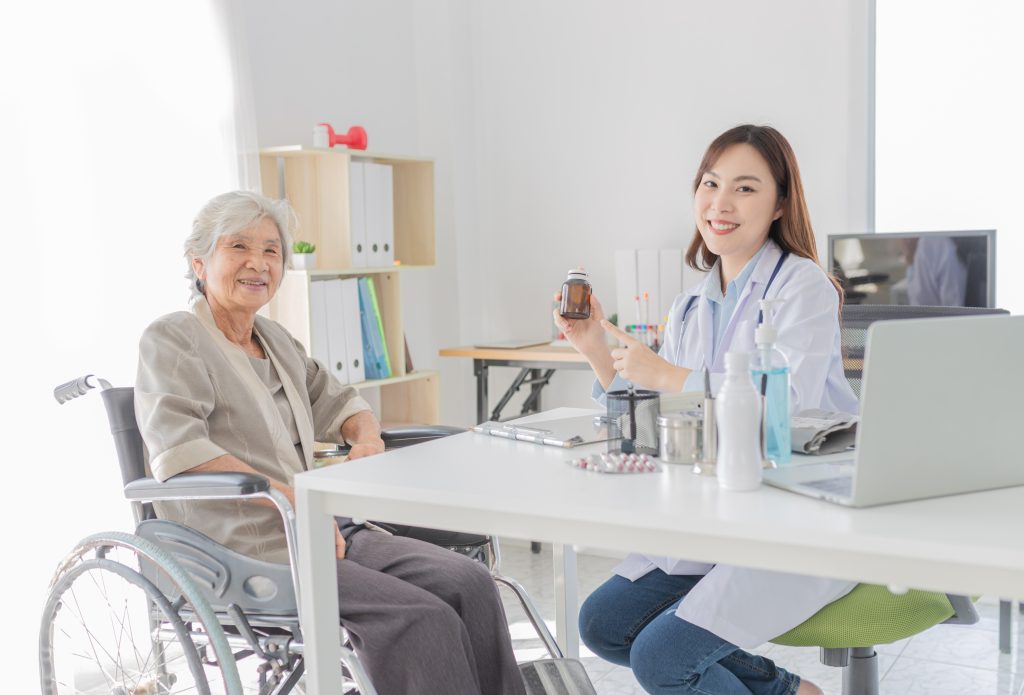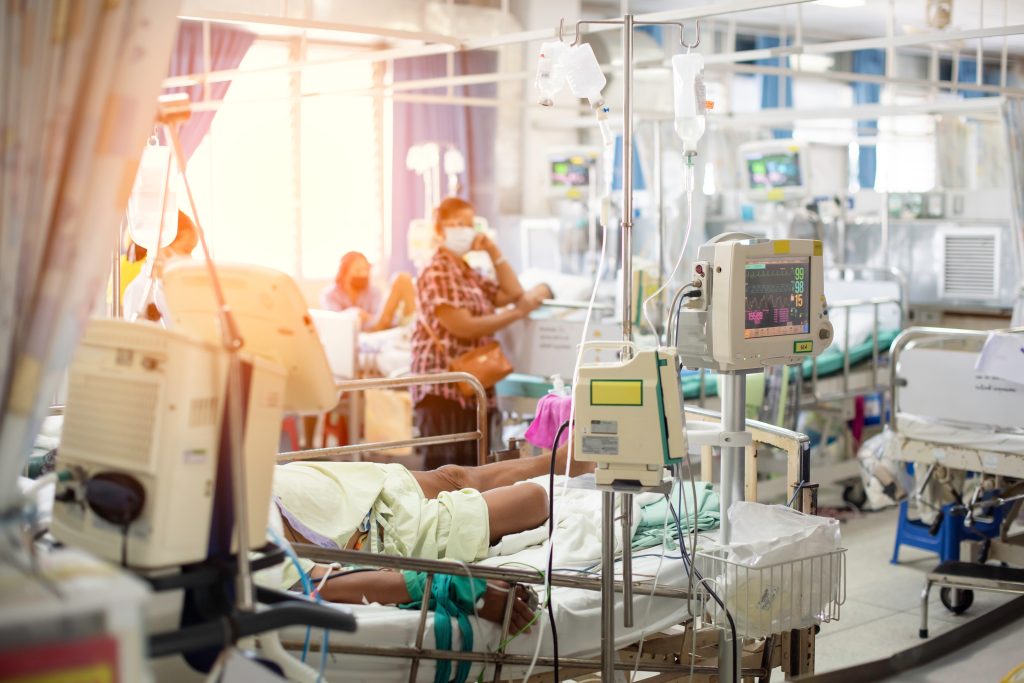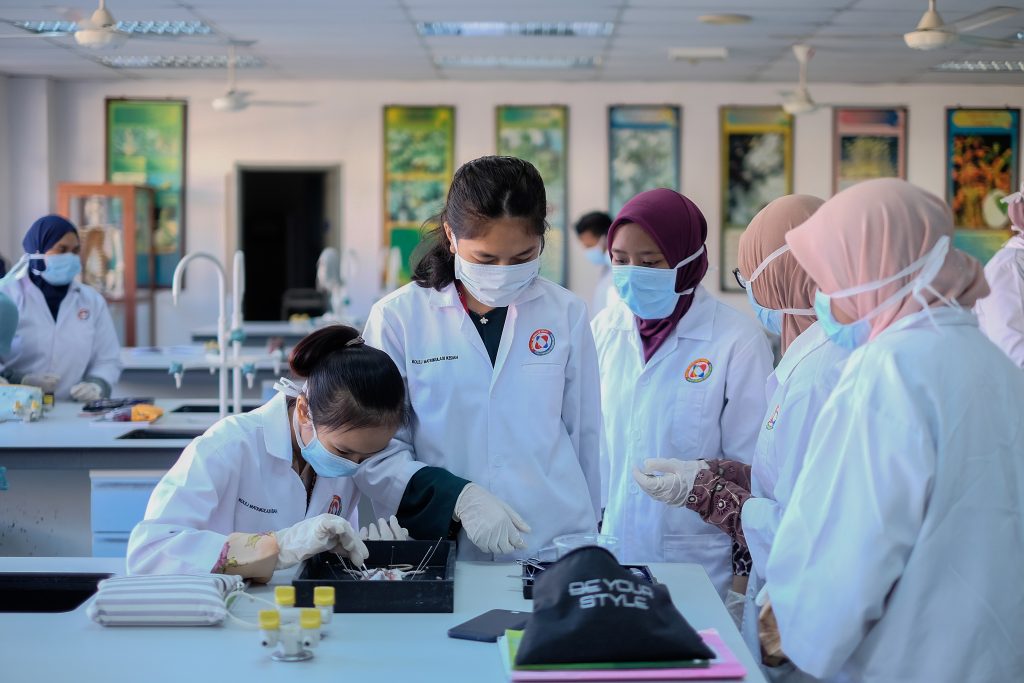A council member calls for greater recognition and a bigger role for pharmacists in preventive care
For many, the image of a pharmacist starts and stops at the counter: white coat on, medications in hand. With all due respect, the profession goes far beyond that, and Gina Koay Wan Lee is determined to change that perception.
As a council member of the Malaysian Pharmacists Society (MPS), Gina Koay is advocating for a stronger presence of pharmacists in public health, especially in the realm of preventive care. She pushes for a future where pharmacists are recognised not just as dispensers, but as vital, trusted healthcare providers in their own right.
This mission is deeply personal. Gina Koay has been involved with MPS for over two decades, starting from the Penang Area Committee after returning from her studies in Australia, eventually becoming Penang Chair, and now serving as a council member. Her decision to run for re-election came after reflecting on her first two years in the role—years spent understanding the structure, challenges, and gaps within the pharmacy profession, especially from the perspective of independent community pharmacists like herself.

1Twenty80: Congratulations Ms. Gina on the recent re-election! What does this role mean to you?
Gina Koay: Being on the council has allowed me to grow in many ways—expanding my network, collaborating with pharmacists from different sectors, and playing a part in shaping the future of our profession. It’s a platform where I can advocate for issues that matter deeply to me, like professional recognition and the role of community pharmacies in preventive care.
I believe every pharmacist in Malaysia should be a part of MPS. There are so many branches of pharmacy: community, hospital (public and private), academia, research, military, veterinary, industry, and more. MPS is a platform that brings all of us together. It protects and uplifts the image of pharmacists nationwide.
Unfortunately, public recognition of pharmacists in Malaysia is still low. Unlike in countries like Australia, where pharmacists are seen as essential healthcare providers, here many people still don’t understand what we do. One of our goals is to change that perception—through awareness, advocacy, and policies like mandatory prescription and dispensing separation, where medicines should be dispensed by pharmacists.
There’s still a lot of work to do. But that’s exactly why I’m here, to continue bridging those gaps and to work together with other stakeholders to advance our profession.

1Twenty80: Looking back at your previous term, what achievements are you most proud of?
Gina Koay: One of the things I’m most proud of was a community pharmacy health event we organised as part of a broader initiative under the Pharmacist Healthcare Leadership Forum. We worked together across multiple MPS Chapters for this.
We invited several speakers to share insights that would benefit community pharmacists, covering strategies to drive sales in today’s competitive market, the impact of AI and retail trends, and updates on e-invoicing. The platform aimed to help pharmacists stay informed on these key topics. We also brought together state representatives from community pharmacies, which helped open up conversations on challenges pharmacists face on the ground.
We also held a town hall for independent pharmacies, which eventually led to the formation of a special interest group focused on community pharmacists—especially those in independent practice.
Community pharmacy is a huge area, and we want to strengthen both the business and professional aspects. These efforts are all about helping pharmacists continue developing their skills and staying relevant, especially in terms of continuous professional development. So I’m really proud that we’ve created these platforms and initiatives to support that growth.
1Twenty80: What have you learned from your previous term that will shape how you lead this time?
Gina Koay: I transitioned from being the Penang Area Committee Chair to the MPS council. So one of the key things I learned was the value of building strong relationships. Many of the connections I made in Penang were vital, and as I expanded into the national level, I saw how interconnected the pharmacy community is. Whether you’re in hospital or community pharmacy, especially for independent pharmacists who are fewer in number, the same names and faces come up often. So when issues arise, it’s easier to solve them together once we’ve built that rapport and network.
Now that I’ve worked with other state area committees, I’ve realised how much wider the scope really is. In the past two years, I focused on getting to know pharmacists from other states and letting them get to know us too. I co-chair the Community Pharmacy Chapter with another council member, Mohd Amin Mohd Mansor, and it has taught me that we must look at things from a national lens rather than just our state. It’s not easy leading on such a broad scale, we have to identify challenges from every state and think about how to address them collectively. That’s why this term, I really want to advocate for preventive care. We need to identify specific areas we can champion and work towards them together.

1Twenty80: What challenges do pharmacists currently face in Malaysia that you hope to address through MPS?
Gina Koay: I believe in listening to pharmacists on the ground. As someone from the community pharmacy sector, especially independent pharmacies, I see a few major challenges that we’re facing now:
- Economic pressures – the current downturn combined with massive competition, particularly from the rapid growth of pharmacy chains, is putting strain on independent pharmacies.
- Product-oriented business model – community pharmacies remain largely focused on product sales, with very little structured reimbursement for professional services.
- Consultations and counselling are typically given for free. (Unlike doctors with set consultation fees, pharmacists are not paid for their time and expertise, which undervalues their work.)
- Limited recognition for preventive care – national healthcare policies, despite the 2023 Health White Paper, still do not fully acknowledge or utilise pharmacists’ role in prevention.
- Public reliance on tertiary care for minor issues – many people go straight to hospitals for mild conditions (e.g., fever) instead of starting with primary care at pharmacies.
- A tiered system—pharmacy first, GP second, hospital last—would help reduce overcrowding in hospitals.
- Lack of public awareness of pharmacists’ capabilities – under Group C poison classification, pharmacists can already manage and dispense for conditions such as coughs, colds, skin issues, mild asthma, and sore throats, but this is not widely known.
So the goal is to advocate for the role of pharmacists and make the public aware of how much we can actually help in both wellness and preventive care, not just treatment of illness.
1Twenty80: How do you see your role as a council member contributing to the growth and direction of MPS over the next few years?
Gina Koay: At the moment, I see my role contributing to MPS in three key areas: integrating preventive care, fulfilling professional training needs, and building alliances among independent pharmacy groups.
As I mentioned, MPS plays an important role in maintaining our professionalism. That’s why I believe we need to continuously upskill, especially in areas like preventive care. As a community pharmacist, I often feel we’re torn between two roles: being a professional and being an entrepreneur. We run businesses, but we also need to uphold the standards of our profession. So it’s easy to get caught up in the business side and overlook the need to stay current. That’s why professional development is something I really want to push forward.

1Twenty80: Collaboration is key in healthcare, so how is MPS working with other organisations or government bodies to strengthen the pharmacy profession?
Gina Koay: MPS already collaborates closely with the Ministry of Health (MOH) as well as universities. We have strong partnerships with academic institutions, and that opens up many opportunities for ongoing collaboration.
Looking ahead, we also hope to engage with insurance panels. In fact, we have a dedicated chapter focusing on insurance (I’m not the chair, but I’m part of the committee). Things that have never been done before, can hopefully be done.
As you know, chain pharmacies tend to dominate the industry, but we want to push for fairer representation, especially for independent pharmacies. These are small and medium enterprises (SMEs), yet they’re the largest taxpayers in the country. So, we believe there should be more balanced support across the board.
Of course, we welcome anyone who wants to collaborate with MPS. We’re always open to working together to strengthen the pharmacy profession.

1Twenty80: ‘Championing preventive care in community pharmacies.’ Can you tell us more about this initiative?
Gina Koay: Many community pharmacies in other countries have already shifted their focus beyond just treating illness—they’re actively involved in preventive care. This direction aligns with the International Pharmaceutical Federation’s (FIP) call to action through its “Think Health, Think Pharmacy” initiative.
That’s why we’re working to strengthen preventive care efforts in community pharmacy here as well. One of the first initiatives we’ve started is a pre-diabetes training programme for community pharmacists. We want to upskill pharmacists so they can champion pre-diabetes management as part of preventive care. We’re currently running a pilot project, training about 20 – 30 community pharmacists in the Klang Valley. So far we’ve received around 50 registrations, which shows strong interest. Eventually, we hope to roll this out in every state.
1Twenty80: Why is preventive, service-based care important for the future of community pharmacies in Malaysia?
Gina Koay: We want to see more pharmacists involved in service-oriented work and preventive care. The main goal is really to help patients improve their health outcomes.
Take prediabetes as an example. Many people are already in the prediabetes stage without even realising it—because often it gets missed during regular check-ups. Years later, they may find out they’ve become diabetic. But if detected early, pharmacists can actually help reverse prediabetes. That’s why it’s important to raise public awareness that pharmacists are trained to provide this kind of support too.
We need to build trust, improve health outcomes, and strengthen the role of community pharmacies as the first point of contact in the healthcare system. A pharmacist’s role is much broader than just dispensing or selling a strip of Panadol. We’re here to also help manage health and support preventive care.

1Twenty80: What are some concrete steps or programs that community pharmacies can adopt to shift towards preventive care?
Gina Koay: We’re already doing it in the pharmacy setting. For example:
- Quick screening tests – blood pressure checks, uric acid tests, blood sugar, and cholesterol screenings. These are simple but important preventive steps.
- Medication reviews – pharmacists can upskill themselves for this service. I took a course on medication review services for community pharmacy, organised by UKM, about two years ago. With this training, we can help patients better understand and manage their medications.
- Weight management support – while clinics and hospitals also provide this, pharmacies can too. Some patients prefer to come to us for guidance, giving us the chance to help them manage their weight properly and offer motivation.
These may seem like small steps, but these services are already being provided, and it just hasn’t been widely advocated yet. What we need now is to measure the outcomes, build partnerships, and provide more training so we can scale these services further.

1Twenty80: How can pharmacists be better equipped or trained to deliver preventive healthcare services?
Gina Koay: One way is through continuous training, which is why we’re running the prediabetes training for pharmacists this Saturday. Another is through certification programmes or becoming board-certified. Pharmacists can also explore more areas like clinical pharmacy, smoking cessation, prediabetes care, and medication review.
They can take specific courses to upskill, because we need more trained pharmacists in preventive care. You can be a general pharmacist, but if you want to specialise in one area, I believe you need to invest in certification to improve yourself.
Mentorship is also important. Whether you’re a senior or junior pharmacist, having a peer support network helps accelerate readiness and competence in delivering preventive services.

1Twenty80: What impact do you hope this initiative will have on public health in Malaysia in the long run?
Gina Koay: I hope this initiative can help build a culture where community pharmacies are recognised as wellness hubs. When we empower patients early (through prediabetes screening, education, and awareness), we help them understand where they stand and improve their health outcomes in a more sustainable way. At the same time, we’re repositioning pharmacists as active partners in Malaysia’s public health journey. Community pharmacists play a much bigger role beyond just dispensing. We can support both acute care (coughs and colds) and chronic disease management.
A pharmacist’s role should be upscaled. We have to position ourselves and show the world that we can do it. Other countries have already done this—why not Malaysia? In other countries, pharmacists are already involved in things like vaccinations and specialisations. During COVID, pharmacists here were trained to administer vaccines under doctors’ supervision. Unfortunately, we still don’t have a green light in Malaysia to officially say, “Come to our pharmacy for a vaccine,” even if we have the skill. That’s why we must continue to upskill and champion what we’re capable of.
We have so many pharmacists here—hospital, community, and more—regulated by Lembaga Farmasi Malaysia and governed by MOH. Our profession is not unregulated, but we need to keep improving. Preventive care should be our focus for the next five years. My own roots are in community pharmacy. I trained in Australia, where the model is mature, mentorship is strong, and about 90% of pharmacists are trained in community settings. When I returned to Malaysia, I knew community pharmacy was my path.
Time flies… it’s already been two years in council, and now I’m in my second term. Everyone has the same 24 hours. It’s how we use our time to do things faster, better. With time and effort, I believe we’ll get there.
Join our 1Twenty80 Broadcast Channel today! Be the first to receive interview updates, behind-the-scenes snippets and happenings in Malaysia’s health scene!











